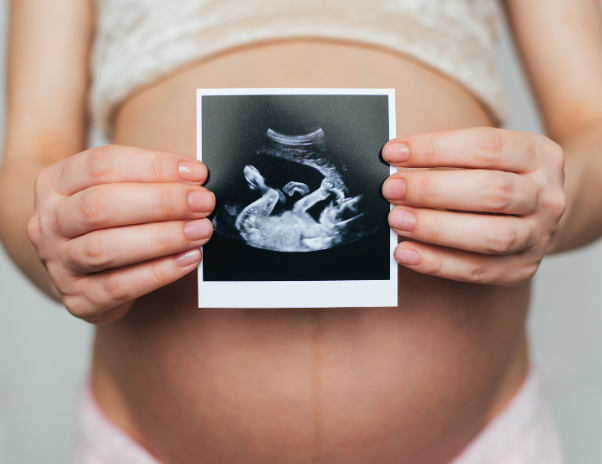.png)
What is the importance of maternal diet and nutrition?
The journey of motherhood is a remarkable and transformative experience, and ensuring a healthy pregnancy is of utmost importance. Maternal diet and nutrition is one important component that has a major effect on the health of both the mother and the baby as they grow. Proper nutrition during pregnancy provides essential nutrients, supports the development of the foetus, reduces the risk of complications, and lays the foundation for a healthy start to life.
In this blog post, we will discuss the importance of maternal diet and nutrition and explore the benefits of maintaining a healthy diet during pregnancy.
-
Optimal Foetal Development
The mother's diet is the only source of nutrition for the developing fetus. Adequate intake of essential nutrients, such as folic acid, iron, calcium, omega-3 fatty acids, and vitamins, ensures that your organs, bones, and brain develop and function properly. A healthy mother encourages optimal growth of the baby, lowering the chance of birth abnormalities and low birth weight.

-
Optimal Placental Function
The placenta acts as a lifeline between the mother and the baby, supplying oxygen, nutrients, and removing waste products. A nutrient-rich diet supports the optimal functioning of the placenta, ensuring a continuous supply of essential nutrients and oxygen to the developing baby. This encourages healthy foetal development and lowers the chance of intrauterine growth limitation.
-
Reduced Risk of Complications
A nutritious diet may contribute to a lower risk of several problems during pregnancy. Proper nutrition helps manage gestational diabetes, preeclampsia, anaemia, and excessive weight gain, which can adversely affect both the mother and the baby. A well-balanced diet strengthens the immune system, lowers the risk of infection and improves recovery of the mother after childbirth.
Maternal nutrition should include a variety of essential micronutrients, such as iron, iodine, vitamin D, and zinc, as deficiencies in these nutrients can contribute to birth defects. Adequate intake of Folic Acid especially during the early stages of pregnancy plays a vital role in the formation of the baby's neural tube, which later develops into the brain and spinal cord. Insufficient intake of folic acid increases the risk of neural tube defects, such as spina bifida.
Consumption of foods rich in folate or taking folic acid supplements is recommended to pregnant women to reduce the risk of these birth defects. Soon to be mothers must visit a nutritionist for a proper meal plan that includes all essential nutrients.
3. Healthy Birth Weight
Babies born with a healthy birth weight typically have sufficient nutritional reserves to support their growth and development during the early months of life. This can contribute to their overall well-being and provide a solid foundation for optimal growth and development.They have a reduced risk of immediate health complications, such as respiratory problems, infections, and low blood sugar.
A well-balanced diet that provides sufficient calories, proteins, carbohydrates, vitamins, and minerals can contribute to achieving a healthy birth weight for the baby. Iron deficiency anaemia, for example, has been associated with an increased risk of preterm birth and low birth weight. Adequate intake of iodine in maternal diet is crucial for proper thyroid hormone production, which is essential for the baby's brain development. Adequate birth weight is an indicator of the baby's readiness for life outside the womb and their ability to regulate body functions effectively.
4. Long-Term Health Benefits for the Child:
In addition to having an immediate effect on the baby's health, maternal nutrition and diet also have long-term impacts. Research suggests that a nutrient-rich diet during pregnancy can lower the risk of chronic diseases, such as obesity, diabetes, and cardiovascular disorders, in the child's later life. It emphasises the value of providing an adequate nutritional foundation for the mother during pregnancy in order to ensure the health of the baby's future.
5. Nutritional Needs for the mother

Increased energy and nutritional consumption are necessary during pregnancy to support the physiological changes taking place in the mother's body. A balanced diet rich in fruits, vegetables, whole grains, lean proteins (a source of protein that is low in saturated fat), and healthy fats helps meet these increased nutritional needs. Sufficient energy intake prevents maternal nutrient depletion and supports the mother's overall health and well-being during this physically demanding period.
6. Mental and Emotional Well-being:
The mother's mental and emotional health is positively impacted by maintaining a healthy diet while she is pregnant. Nutrients like omega-3 fatty acids and B vitamins play a vital role in baby’s brain development and mother’s mood regulation. A well-fed mother is more likely to feel lower stress levels, a better mood, and increased emotional health, which is advantageous to both her and her growing child.
The significance of maternal diet and nutrition cannot be overstated. The best growth and development of the foetus can only occur with an optimally balanced diet rich in vital nutrients, which also protects the mother's health. Expectant moms can lower their risk of difficulties, encourage long-term health advantages for their unborn child, and improve their personal wellbeing by putting healthy nutrition first during pregnancy.

Never forget that a healthy mother is the foundation of a healthy pregnancy. Consult with a registered dietitian or your healthcare provider to determine what is healthy for you..
